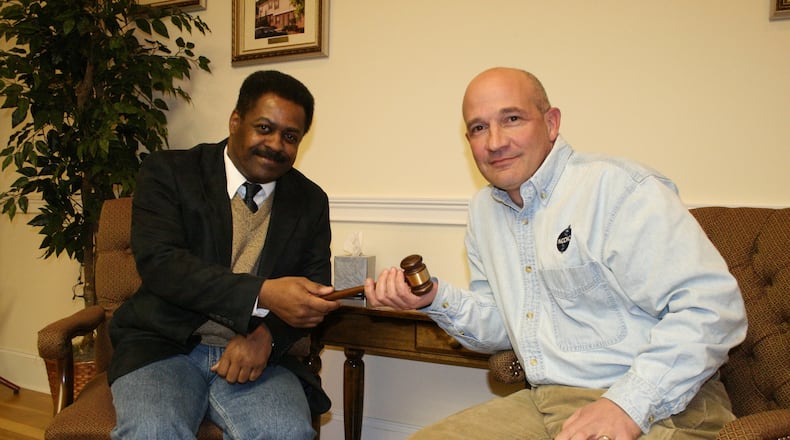A former prison doctor has opened a nursing home that will take up to 280 elderly and infirm inmates who otherwise might not have a place to go when they’re paroled.
“Even for a person who has no health issues, finding appropriate housing when on parole can be very, very complicated,” said Sara Totonchi, executive director of the Southern Center for Human Rights. “When you add in health issues or mobility issues or other challenges it can be nearly impossible to find.”
The Bostick Nursing Center in Milledgeville, on the site of a demolished prison, is the first in Georgia that was conceived specifically for parolees. It will begin accepting parolee-residents early next year.
There were already three nursing homes in South Georgia that accepted parolees but catered to the general public — in Montrose, Byromville and Pineview. With no spaces specifically set aside for one-time prisoners, parolees are accepted only if there is room; each has between 10 and 20 parolees in residence and at least two of them cannot take sex offenders. Messages left at the three nursing homes were not returned.
“This facility (Bostick) will serve a population that’s extraordinarily difficult for the state to place. Even though they are not mobile and (are) elderly and, in some cases, very sick, most nursing homes don’t want to take those folks in,” said Brian Robinson, a spokesman for CorrectHealth, which specializes in providing health care in correctional facilities. “It keeps the state from having to keep inmates (in prison) because they have nowhere else to send them. Having them in a nursing home is much cheaper than keeping them in a prison cell or in a jail cell.”
The cost of caring for parolees is covered by Medicaid, a state-run program that is primarily funded by federal taxpayers. Dr. Carlo Musso, who owns CorrectHealth, wrote in his bid to buy the abandoned Bostick State Prison that he expected the daily cost of caring for each parolee at the new center would average $179 the first year and $184 the second year.
In his state application to operate a nursing on the grounds of the now-closed Central State Hospital, Musso estimated the facility would take in more than $16.7 million a year, most of it from Medicaid.
“The size of this population of medically fragile, parole-eligible inmates is large and growing rapidly, due, in part, to the aging of the inmate population,” Musso said in an announcement last month. “The number of inmates in state custody who are age 50 or over increased by an astounding 590.8 percent in the last 20 years and shows no sign of slowing.”
According to the Department of Corrections, more than 5,600 inmates are 55 or older. Out of more than 52,600 total prisoners, another 4,200 are between the ages of 50 and 55.
Prisoners, for the most part, age faster and have more health problems than the general population, according to various studies. And once a prisoner is released, those health issues become even harder to manage.
The Marshall Project reported that the number of inmates 55 and older had quadrupled between 1995 and 2010. The American Civil Liberties Union projected that by 2030 one-third of all inmates in the nation will be older than 55.
“The recidivism rate of adults over 65 is only 4 percent, yet compassionate release laws are rarely used,” the ACLU wrote in a document on its website.
In the first 11 months of this year, almost 8,000 prisoners were released on parole, but records do not indicate how many of them were at least 55.
Other states have tried to provide nursing home care to inmates in the community, rather than keep the inmates in prison. But they confronted community opposition to parolees living in nearby nursing homes.
Milledgeville residents, however, are accustomed to having prisoners in their midst as prisons have been a major employer in the area for decades.
At one time, there were eight prisons in Baldwin County. Now there are two. The nursing center, once it is fully operating, will employ about 330.
“These are people that the Parole Board, with a very high threshold for approving the release of people, has taken a hard look at this situation and determined them no longer a public safety threat,” Totonchi, of the Southern Center for Human Rights, said. “So it makes no sense for them to take up valuable and expensive prison beds. Yet there is little to no appropriate housing in the community.”
Musso, who has a decades-long relationship with the Georgia Department of Corrections, bought the 700-bed Bostick State Prison for $50,000 in 2014. He demolished it and built in its place the nursing home for prisoners.
“Typically, these patients are difficult to place in nursing facilities,” Musso said. “I have a passion and compassion for inmate end-of-life issues.”
About the Author
The Latest
Featured


